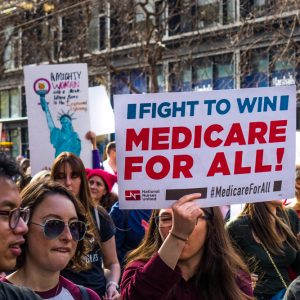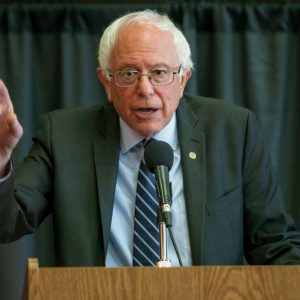Americans and ‘Medicare for All’ go hand in hand, given its role for providing optimum healthcare facilities to US citizens. However, as per a nationwide poll conducted by Kaiser Family Foundation (on the basis of a monthly tracking poll), Americans are not totally in love with the concept. The answers received from the participants of the poll-based survey show that not all Americans are on the same page about the idea of ‘Medicare for All’.
What Do Majority Of Americans Think About Medicare?

Almost 70% of Americans had rendered considerable support to ‘Medicare-for-all’, which is also known as the ‘single-payer health care’, as per another recent survey by Reuters. Under this, there were Democrats that roughly constitute about 85%, while there are about 52% of the Republicans. It’s just 20% of Americans who opposed this idea. The different party leaders demonstrated a stark difference in opinion as well when it came to supporting and substantiating the essentiality of adopting the program, and that possibly explains and reflects the percentage difference. While Bernie Sanders glorified ‘Medicare-for-all’ in his 2016 campaign, President Donald Trump was completely against it, stating clearly how the program has a high chance of failing, if seen from the perspective of seniors.
Majority Of Americans Who Are Aware Of Tax Implications Opposed The Idea

Gradually, the initial support for Medicare came down to 56% and then to 42%. It was found that when people were questioned about the possible outcomes, along with the advantages and the disadvantages, the shift became prominent. Again, the fluctuation in numbers occurred when it was declared that ‘Medicare-for-all’ would guarantee health insurance as a basic right (71%) and also minimize the rate of premiums and cut down on out-of-pocket prices (67%). At that time, the support provided to the program increased manifold. But the very moment when the participants in the survey were informed about the government-run system and how that can cause unnecessary delays in obtaining care or lead to high taxes, the support came down to about 26% and 37% respectively. In fact, the support dropped down to a meager 32% once it was declared how it’s likely to threaten the present Medicare program.
Tax Is A Big Factor

When Robert Blendon, a professor at Harvard T.H. Chan School of Public Health, had reviewed the poll, he expressed deep concern about the tax factor. He stated clearly how the state single-payer system in Colorado and Vermont didn’t quite succeed, largely because of the anxieties revolving around tax increases. Also, there seems to be no disagreement concerning the single-payer system that would inevitably lead to tax expansions. This is chiefly because the government can pay the premiums which is currently paid by people and employers since it’s a replacement for the health insurance industry at private levels. The only question that comes at this point is how much the government is ready to bear.
The Government Will Possibly Have To Pay More

A number of studies have been conducted independently that showed how the dramatic increases are likely due to the amount of money spent on health care, with the range mostly between $25 trillion to $35 trillion and even more, over a period of a decade. But if the estimate from the Political Economy Research Institute at the University of Massachusetts is taken into account, the cost can be quite low. With everybody vying towards maximum tax savings (and that’s justified), the government will possibly have to expand the number to about $1.1 trillion from recent revenue sources and that, too, in the very first year when the new program begins.
Medicare Will Be A Key Factor In 2020 Presidential Election

The Director of the Kaiser poll, Mollyann Brodie had rightly pointed out how the continuing swings of ‘approval and disapproval’ shows the dispute over ‘Medicare-for-all’ right at its inception. Ahead of the 2020 presidential election, the ‘Medicare-for-all’ is a vital issue that can pave the road for a smooth run for the Democratic base since Republicans are quite opposed to the idea. Public debates in regards to this issue can be a divisive one for the nation and that cannot be overlooked, as per Brodie.
The Kaiser Tracking Poll was conducted in between 9th and 14th January and the surveyors made random calls over landlines and mobile phones made to 1190 adults. We have to wait a bit more to understand the nationwide sentiment.





